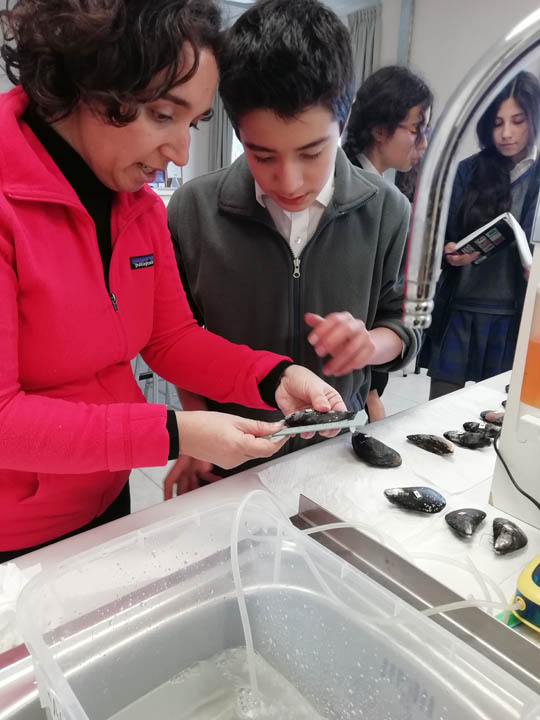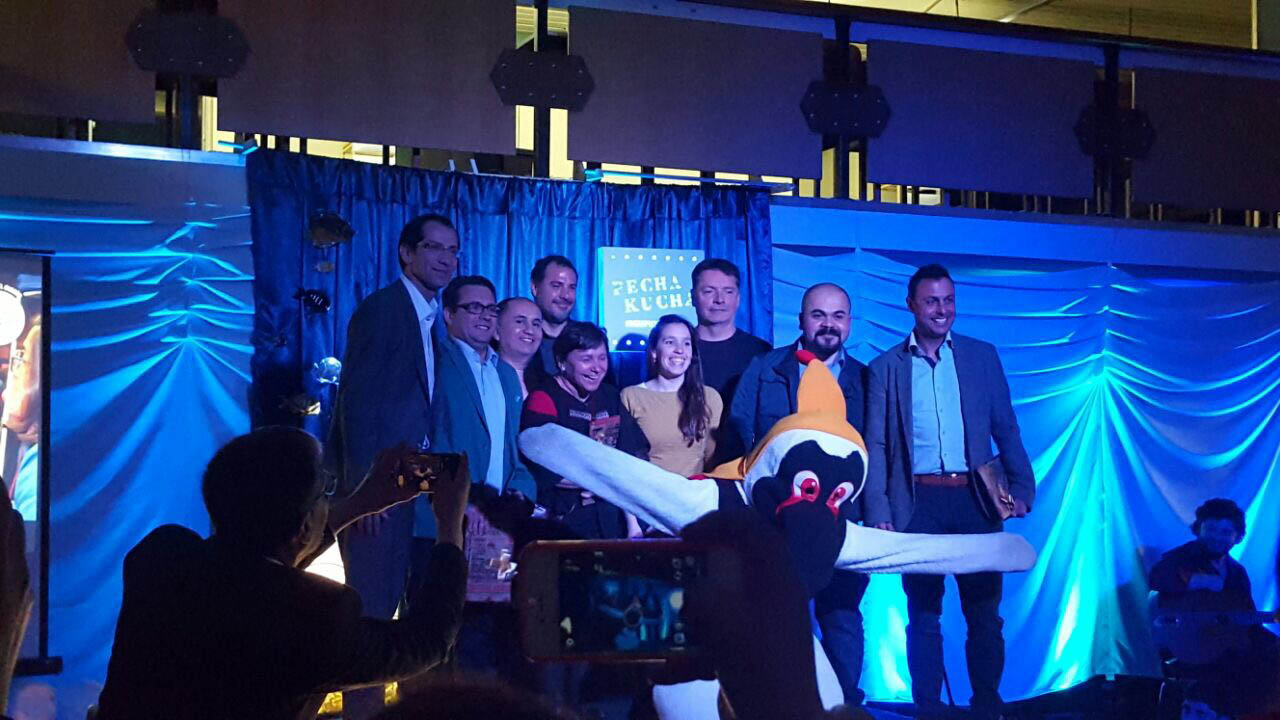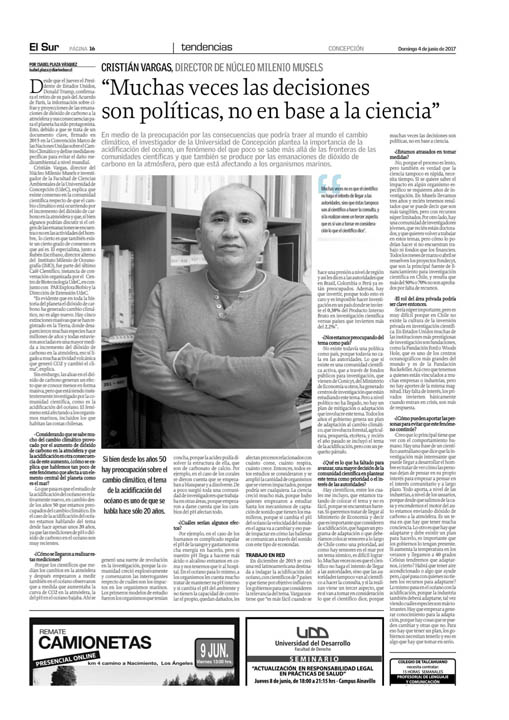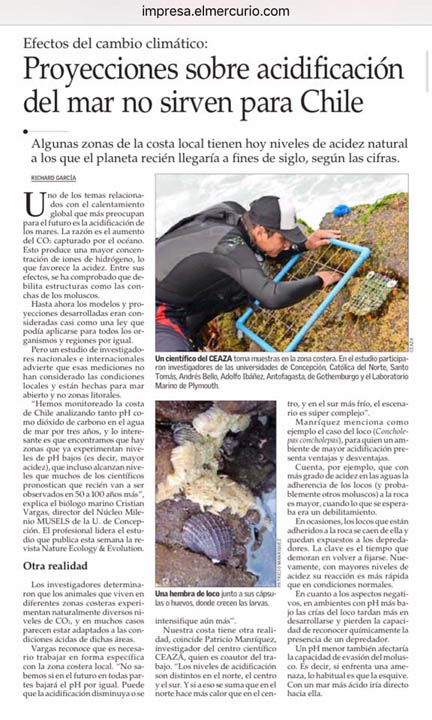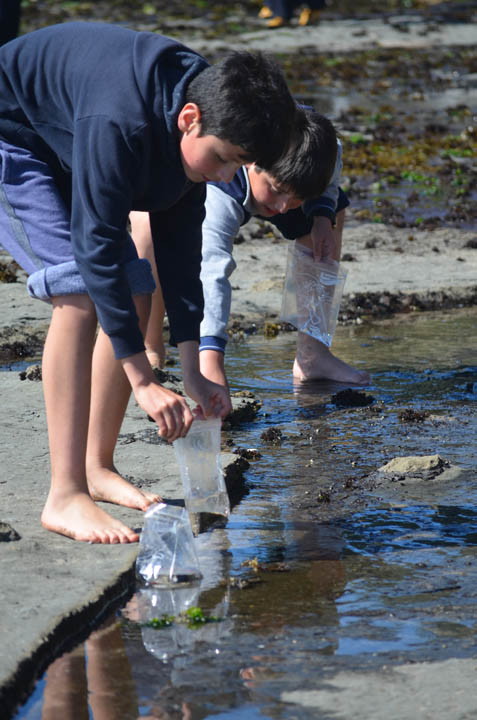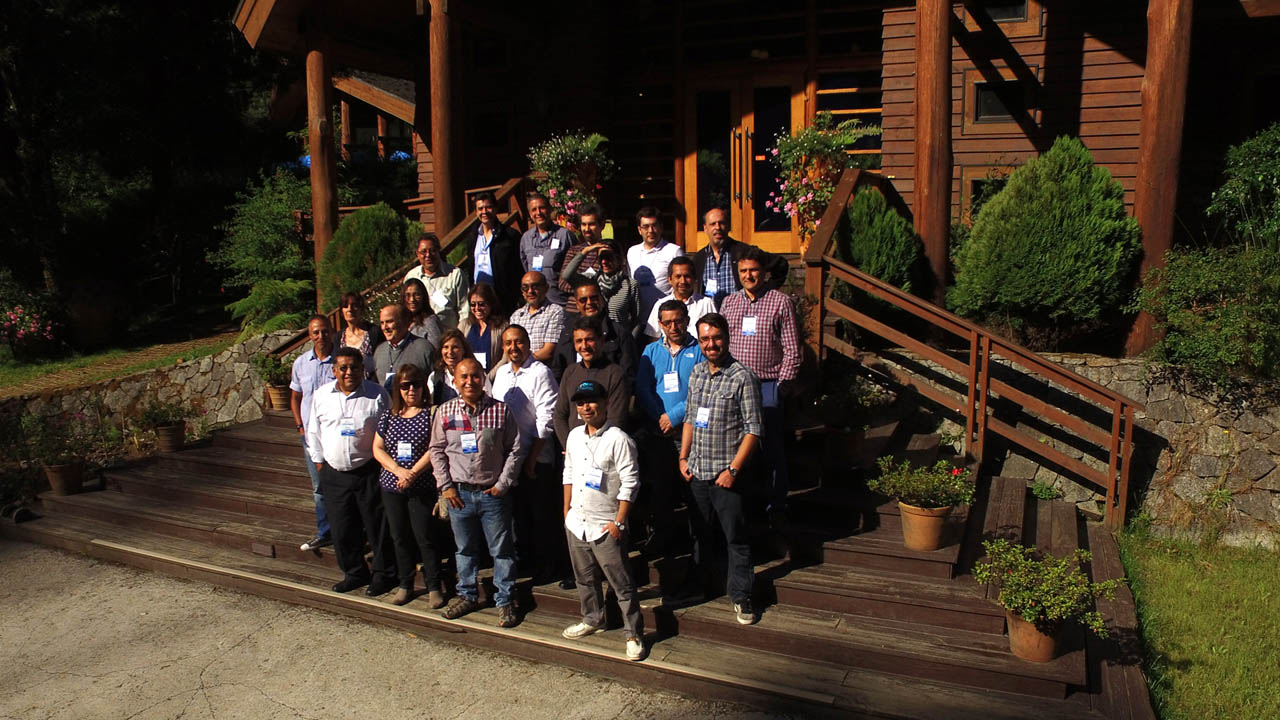Our laboratory conducts regularly multiple outreach activities each year, including:
- Talks for primary and secondary school students from this region in Chile.
- Depending on our time availability, we have also received small groups of school students, to carry out simple experiments that demonstrate the impacts of Ocean Acidification. These students have subsequently participated in national scientific fairs.
- Program “From the Mountain to the Sea” it is an activity that seeks to invite and bring school children from Andes Mountain Area, to get to know the wonders of the sea. In some cases, some of these children experience their first approach to the ocean. See: http://www.iniciativamilenio.cl/de-la-montana-al-mar-la-actividad-de-proyeccion-al-medio-externo-del-nucleo-milenio-musels/
- Conferences at universities and research center.
- Participation in multiple national and international conferences.
- Through the MUSELS Millennium Nucleus, part of our team of researchers has participated in a series of Webinars, and recently Prof. Vargas, together with Dr. Francisca Oyarzún have organized a Facebook Live Program, titled “#Quedateencasa y Conversemos de Ciencia “, where they invite a Chilean scientist every week to talk about a scientific topic. This activity was organized in the framework of the COVID19 pandemic that affected the planet during 2020.
- Some of the activities in which we have participated are available on the Youtube Channel of the MUSELS Millennium Nucleus:
- https://www.youtube.com/channel/UCZkjlBkcVQPxJo6Ya5XmK9g/videos?view=0&sort=dd&shelf_id=0
- Our group has had a dozen appearances annually in written, digital, web, etc; as well as periodic appearances on local and national television channels.
Follow our channel on YouTube
Latin-American Ocean Acidification Network (LAOCA)
Professor Vargas has been one of the leaders and founders of the Latin American Ocean Acidification Network (LAOCA). This network was officially established on December 15th, 2015, in Concepcion city, Chile, supported by the effort of a group of 24 scientists from seven Latin-American countries, including Argentina, Brazil, Colombia, Ecuador, Peru, Mexico, and Chile, worked all together on a regional workshop, which was funded by the Intergovernmental Oceanographic Commission IOC-UNESCO, the Ocean Acidification International Coordination Centre (OA-ICC), the Center for the Study of Multiple-Drivers on Marine Socio-Ecological Systems (MUSELS), and the Millennium Institute of Oceanography (IMO) in Chile. The main goals of LAOCA Network are; (i) to synthesize the information about ocean acidification impacts in Latin-American, (ii) to encourage the implementation, maintenance, and calibration of long-term data-set of carbonate chemistry in Latin-America, (iii) training of LAOCA members in the different action lines (e.g. observation, experimentation, and modeling), (iv) to standardize chemical analytical techniques and protocols for experimentation in order to enhance data quality, (v) to establish a regional node for the articulation and communication between local, regional, and global research programs (e.g. GOA-ON and IOCCP), (vi) to determine and evaluate local and regional scenarios of Ocean Acidification for different types of marine ecosystems (e.g. estuaries, coastal area, open ocean, etc), (vii) to enhance student exchange and to facilitate access to infrastructure and equipment among institutions and LAOCA member countries, (viii) to design an outreach strategy for communicate the problematic of ocean acidification to society, (ix) to promote the development of cooperation projects between member countries of LAOCA, and (x) to promote the inclusion of the problematic of Ocean Acidification on the political agenda of member countries, and even through the pursuit of cooperation agreements among LAOCA members. See: https://news-oceanacidification-icc.org/2015/12/21/establishment-of-the-latin-american-ocean-acidification-network-laoca-network/
A Regional Action Plan on Ocean Acidification for Latin America and the Caribbean: Encouraging Collaboration and Inspiring Action was published in 2018 by the Ocean Acidification International Reference User Group (OaiRUG) in partnership with INVEMAR, IUCN and LAOCA. Download at: http://www.goa-on.org/documents/resources/oa-regional_action_plan-la_carib-fren_eng.pdf

